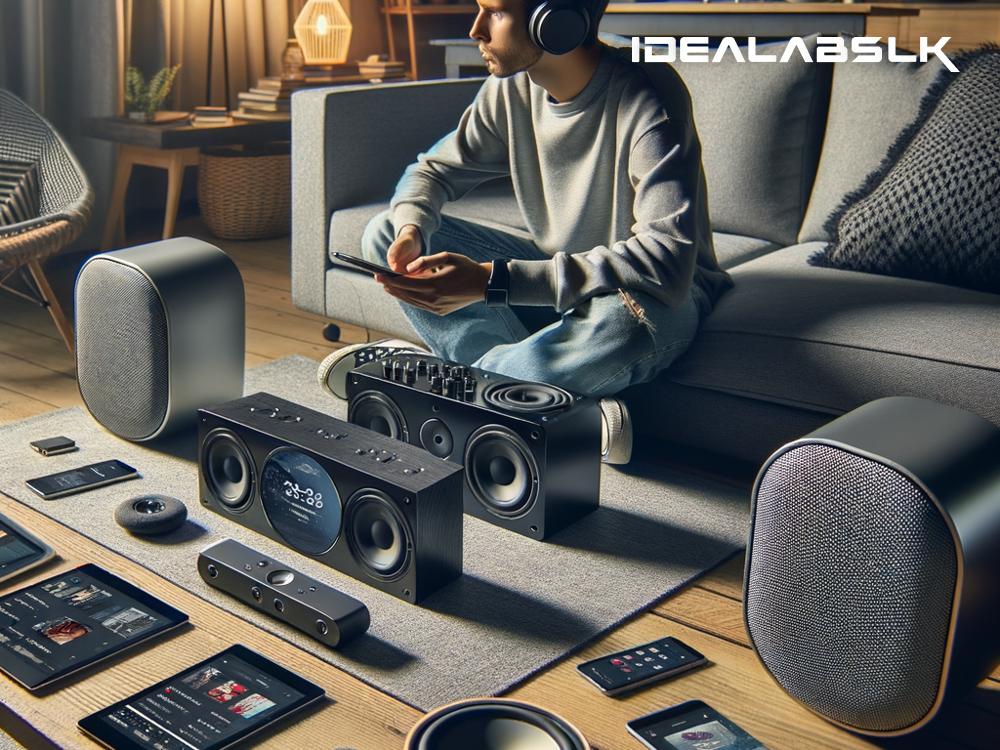Unveiling the Magic of Advanced Audio Codecs on Streaming Quality
In today's fast-paced digital era, streaming music, podcasts, and video content has become part and parcel of our daily routine. Whether it's jamming to our favorite tunes, catching up on the latest podcast episodes, or binging a new TV series, high-quality streaming has become not just a luxury but a necessity. But have you ever stopped to wonder what makes the audio in our streams crystal clear and so enjoyable? The secret sauce behind this is something called "audio codecs". Let's dive into the world of advanced audio codecs and explore their impact on streaming quality.
What Are Audio Codecs?
First things first, let's break down what an audio codec is. In simple terms, a codec is a software or hardware tool that compresses and decompresses digital audio data. The word "codec" itself is a blend of 'compressor-decompressor' or 'coder-decoder'.
The primary goal of an audio codec is to reduce the file size of audio content without significantly impacting its quality. This makes it faster and easier to stream or download audio over the internet. Imagine trying to push a massive, heavy box through a small door — quite challenging, right? Now, what if you could make that box smaller, push it through, then return it to its original size without damaging anything inside? That's essentially what an audio codec does with your audio files!
The Impact on Streaming Quality
As internet speeds have increased and technology has advanced, so too has the complexity and efficiency of audio codecs. This has had a profound impact on streaming quality in several key ways:
1. Higher Sound Quality: Advanced audio codecs use sophisticated algorithms to ensure that when audio is compressed, the quality loss is minimal. This means that even though the audio files are made smaller for streaming, what you hear remains crisp, clear, and true to the original recording. It's like having the band play live in your living room!
2. More Efficient Streaming: With smaller file sizes, audio streams much faster and more smoothly. This reduces buffering times and makes for a seamless listening experience, even on slower internet connections. You no longer have to sit there staring at the spinning wheel of doom, waiting for your music to start playing.
3. Enhanced Accessibility: Thanks to the efficiency of advanced codecs, high-quality audio streaming is not just limited to those with high-speed internet and the latest gadgets. This technology makes it possible for people in areas with less robust internet infrastructure to still enjoy quality audio content, bridging a significant digital divide.
4. Innovations in Audio Content: Advanced codecs have also paved the way for innovations in audio content itself. For example, immersive audio experiences, such as 3D audio or spatial audio, rely heavily on these codecs to deliver their intricate soundscapes effectively over streaming platforms.
Popular Advanced Audio Codecs
Several advanced audio codecs have emerged over the years, each with its strengths and designed to meet specific needs. Some of the most widely used include:
-
AAC (Advanced Audio Coding): Known for its efficiency and high quality, AAC is the standard audio codec for YouTube, iPhone, and many other platforms and devices.
-
Opus: Highly versatile and open-source, Opus is great for everything from music to real-time communication, delivering excellent quality at various bit rates.
-
FLAC (Free Lossless Audio Codec): As the name suggests, FLAC compresses audio without any loss of quality whatsoever, making it ideal for audiophiles who demand the best possible sound.
The Future of Streaming
As technology continues to evolve, so too will the audio codecs that drive our streaming experiences. We're likely to see even more sophisticated codecs that can deliver higher quality at even lower bitrates, making high-quality streaming accessible to more people around the globe. Moreover, with the rise of artificial intelligence and machine learning, future codecs could dynamically adjust to our listening environments and preferences, providing a personalized audio experience that we can only begin to imagine.
Wrapping Up
The advancement of audio codecs has played a pivotal role in revolutionizing how we consume audio content online. By making streams faster, more efficient, and of higher quality, these codecs ensure that our digital listening experiences are as enjoyable and seamless as possible. So next time you're streaming your favorite playlist or podcast, take a moment to appreciate the complex technology at play behind the scenes, making it all possible.

